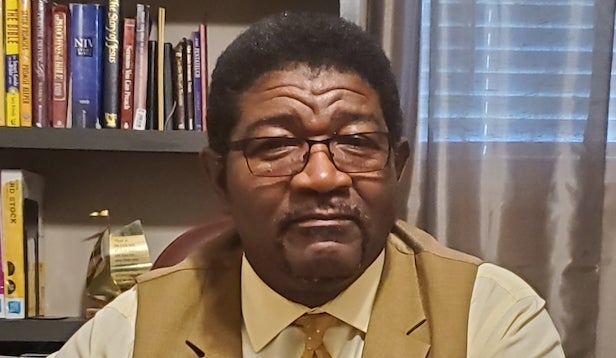First Baptist sending medical mission to Swaziland
Published 3:37 pm Tuesday, October 4, 2016

- ON A MISSION: Beverly Dawson (second from left) writes information taken from a clinic patient during a previous medical mission trip. (First Baptist Church)
Often, churches are thought of as a place to go, but many churches go into the community by way of varied and many ministries.
Those ministries range from neighborhoods just outside churches’ doors to half way around the world. Those ministries range from working with children to meeting the needs of elderly, homebound people.
For about 20 years, First Baptist Church in Washington has been ministering to people in Swaziland through mission trips, including medical mission trips. Those mission trips’ main purpose is to spread the Gospel. The medical missions include operating short-term medical clinics at several sites.
The church is forming a medical mission team to visit Swaziland in February 2017. An informational meeting (meal provided) about that team is set for 5:30 p.m. Tuesday at the church.
Two other mission trips are scheduled for 2017, but details about those trips have yet to be formulated.
“This medical-evangelism mission team is a part of the ongoing vision and dream of First Baptist Church in Washington, and friends/partners help to continue ministry with the Baptist work in Swaziland. This vision of First Baptist Church began with its pastor, Dr. Jimmy Moore, in 1996 when he came on a vision trip to Swaziland,” said Wayne Myers, a missionary who served in Swaziland and is helping organize the next medical mission trip. Myers noted that Moore and four other pastors, during their visit to Swaziland in 1996, decided to try a four-year partnership. “When the ‘official’ partnership with the two Baptist associations of South Roanoke and Atlantic Baptist came to an end, First Baptist Church continued coming back at least once and sometimes twice a year to help with a variety of ministries, and their partnership continues to this day.”
Even when the Myerses (the last International Mission Board missionaries in Swaziland) left early and unexpectedly in January 2016 because of the need for the IMB to reduce their missionary force by 800 to 900, First Baptist Church reaffirmed its commitment to Swazi Baptists that they would continue ministering in Swaziland.
“When you take into consideration the partners who have joined FBC teams to Swaziland over the years, literally hundreds have come to Swaziland as a part of the ministry of First Baptist Church,” Myers said.
“Medical-evangelism teams give us a unique opportunity to share the gospel with Swazis and to be the ‘hands and feet’ of Jesus to minister to the sick and hurting and sometimes ‘forgotten’ people. Each clinic will begin with a team member sharing a devotion, and each patient will have an opportunity to hear a presentation of the gospel and someone pray with them personally before they go,” Myers said. “As a part of the clinic setup, a ‘counseling’ station will be a part of the clinic. When a doctor or nurse finishes with their patient, they will just direct them to the next station, which will be the counseling station where the counselor will share the gospel and pray with each patient.”
Myers said some team members will make home visits, visiting homesteads to take BGR buckets (5-gallon home-based hospice care kits) that have been provided by Baptist Global Response and packed by Baptists and shipped to Swaziland and other areas. Many of the people who receive these buckets are at death’s door and suffer from HIV-AIDS. These are some of the “forgotten” people as family and community members do not want people to know that members of their families and community suffer from this disease, so some of them are left to die hidden and alone, but they need the gospel and need someone to show love and concern for them, according to Myers.
The medical-evangelism team will be departing from Dulles International Airport on Feb. 23, 2017, and returning March 9, 2017. Its work will be in a different part of the country than where a medical team from First Baptist Church has been before, Myers noted. This team will most of its time in the southern part of the country in the Shiselweni region and be based in the town of Nhlangano. Medical clinics will be conducted at or near Swazi Baptist churches in the rural areas. Myers estimates team members will treat 200 to 300 patients a day. Near the end of the trip, the team will move to the northeast of Swaziland to the Vuvulane-Mafucula area and conduct a couple of clinics there before leaving Swaziland.





